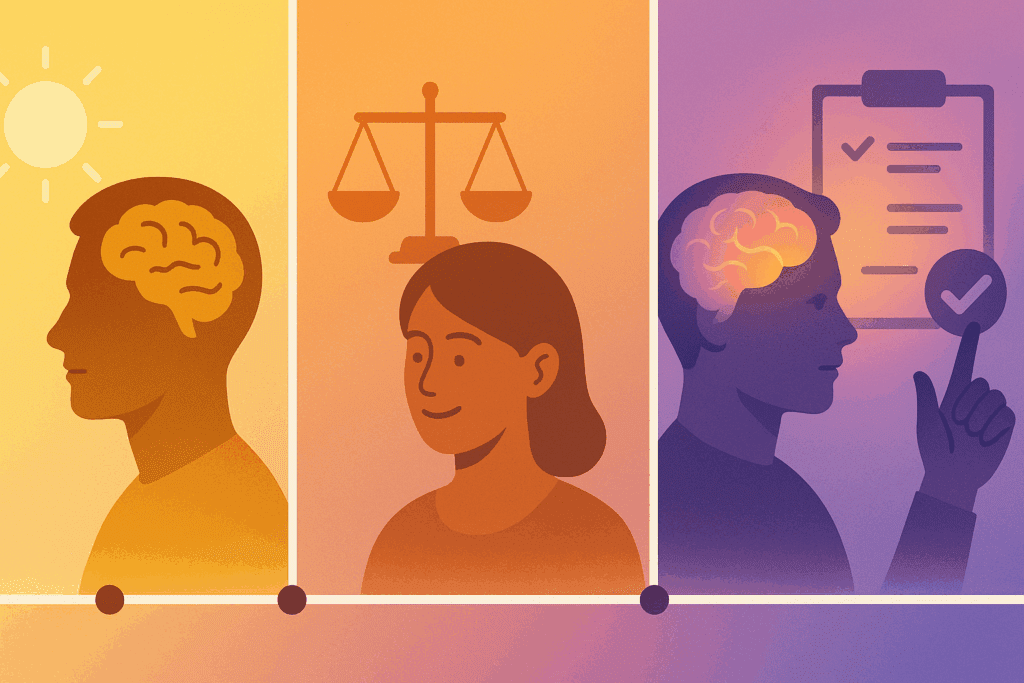In a market saturated with cognitive enhancers and wellness supplements, Mind Honey—branded as “Dose by Mindhoney”—has captured attention as a modern nootropic blend that promises to support mental clarity, boost productivity, and optimize decision-making. As consumers seek sharper focus and balanced mood without the jittery aftermath of traditional stimulants, products like Mindhoney are emerging as viable alternatives. But what do Mindhoney reviews actually reveal? Are the claims supported by science, or are they simply part of the nootropics marketing narrative?
You may also like: How to Choose the Best Brain Supplements for Adults: Science-Backed Ingredients That Support Focus, Memory, and Mental Clarity
To evaluate this thoroughly, we’ll explore Mindhoney ingredients, examine potential Mindhoney side effects, compare Mindhoney vs Alpha Brain, and assess whether this supplement has any relevance for those exploring Mindhoney for ADHD. By the end, you’ll understand whether this product aligns with your cognitive health goals—and if it’s truly a contender among evidence-based nootropics.

Understanding the Rise of Cognitive Supplements in a Hyperproductive Culture
The explosion of interest in brain optimization tools like Dose by Mindhoney parallels growing cultural demands for heightened productivity, creativity, and mental clarity. In both professional and academic circles, enhanced cognitive functioning is seen not as a luxury but as a necessity. The shift has made cognitive support supplements increasingly mainstream, drawing attention from neurohackers, busy professionals, and even mental health practitioners seeking complementary treatments.
At the heart of this movement is a desire for sustained attention and improved executive function—without the disruptive tradeoffs of pharmaceutical stimulants. In this context, Mindhoney reviews have surfaced as indicators of how modern users perceive plant-based, adaptogenic formulas when compared to synthetic alternatives.
What Is Dose by Mindhoney?
Dose by Mindhoney is a daily nootropic supplement formulated with natural ingredients like lion’s mane, ashwagandha, bacopa monnieri, and caffeine sourced from green tea. It claims to promote balanced mood, sustainable energy, and sharper focus, positioning itself as a holistic brain-boosting solution rather than a quick stimulant hit.
The brand has cleverly marketed itself not only through clinical-style claims but also by appealing to wellness-minded consumers who want “clean energy.” This positions Mindhoney ingredients as a safer and more sustainable answer to overstimulation—a promise that resonates deeply in the wake of burnout culture.
Ingredient Deep Dive: What’s in Mind Honey?
The efficacy of any supplement lies in its formulation, and Mindhoney includes several evidence-backed compounds known for their nootropic potential. Let’s break down some of the most talked-about Mindhoney ingredients and what science actually says about them.
Lion’s Mane Mushroom has gained prominence as a neurogenic aid, with preclinical research suggesting its ability to stimulate nerve growth factor (NGF) and support memory. Users often report subtle but persistent improvements in focus and mental clarity over time.
Ashwagandha, an adaptogen rooted in Ayurvedic medicine, is recognized for its ability to reduce cortisol levels and improve stress response. Its inclusion in Dose by Mindhoney points to the product’s stress-reducing potential, which supports clearer thinking and emotional regulation.
Bacopa Monnieri has long been used for cognitive enhancement. Clinical studies associate it with improvements in memory acquisition and reduced anxiety levels—making it one of the more evidence-supported herbs in the Mindhoney blend.
L-Theanine and Green Tea Caffeine are commonly paired for their synergistic effects. Caffeine enhances alertness, while L-theanine promotes calm focus. This combination reduces the jitteriness often associated with traditional stimulants and creates smoother energy curves.
This composition of Mindhoney ingredients suggests a formula that supports neuroplasticity, mood balance, and attentional capacity—key components of any serious brain-boosting supplement.

How Do Users Describe the Effects? Insights from Mindhoney Reviews
Browsing through various Mindhoney reviews across health forums, e-commerce platforms, and social media, certain patterns begin to emerge. Users frequently report feeling more “in the zone,” especially during creative or mentally intensive tasks. There’s a common narrative of “quiet energy”—a phrase that captures the product’s ability to invigorate without overwhelming the nervous system.
That said, not all dose by Mindhoney reviews are uniformly glowing. A subset of users mention experiencing initial gastrointestinal discomfort or restlessness, often attributed to the caffeine component. These observations underscore the need for individual dosing calibration, particularly for sensitive users or those already consuming other stimulants.
Reviews also touch on the supplement’s cumulative effects. Unlike fast-acting energy drinks or synthetic nootropics, Mindhoney appears to require consistent use over several days or weeks to manifest full benefits. This aligns with the pharmacodynamics of adaptogens and herbal nootropics, which tend to work best through gradual physiological modulation.
Evaluating Mindhoney Side Effects: What Should You Know?
While many users tolerate Dose by Mindhoney well, no supplement is free of potential adverse effects. Commonly reported Mindhoney side effects include mild jitteriness, digestive upset, and in rare cases, headaches or insomnia. These symptoms often correlate with sensitivity to caffeine or specific adaptogens.
Of greater concern are potential herb-drug interactions. Bacopa, for instance, can potentiate sedatives, while ashwagandha may influence thyroid activity or blood pressure levels. It’s critical for users—especially those with pre-existing conditions or taking medications—to consult healthcare professionals before initiating any nootropic regimen.
One of the more frequently asked questions in dose by Mindhoney reviews revolves around long-term safety. While most ingredients have long-standing use in traditional medicine, rigorous long-term human trials are still limited. As such, the safest route is to cycle the supplement and monitor cognitive and physiological responses over time.
Is Mindhoney a Viable Option for ADHD?
As interest grows in natural supports for attentional disorders, the question arises: can you use Mindhoney for ADHD? While it’s not a replacement for prescription treatments like methylphenidate or amphetamines, Mindhoney’s adaptogenic and neuroprotective profile could offer auxiliary support.
Some users with inattentive-type ADHD report better task initiation and follow-through with consistent use. The presence of L-theanine and lion’s mane could theoretically support executive function, although controlled studies are lacking. Mindhoney reviews discussing ADHD benefits often come with the caveat that results are subtle and best noticed over weeks of daily use, not immediately.
That said, this supplement could be valuable in a broader cognitive wellness stack, particularly for adults who prefer non-pharmaceutical interventions or wish to minimize stimulant dependence.
Mindhoney vs Alpha Brain: How Do They Compare?
The debate between Mindhoney vs Alpha Brain is inevitable, as both are prominent contenders in the nootropics marketplace. Alpha Brain, produced by Onnit, boasts clinical trials and a loyal following, whereas Mindhoney relies more on adaptogens and holistic branding.
Where Alpha Brain focuses heavily on acetylcholine precursors like alpha-GPC and huperzine A—both known for memory and learning enhancement—Mindhoney leans toward stress-modulating herbs and balanced energy. For those who are caffeine-sensitive or prefer a stimulant-free experience, Alpha Brain may hold an advantage. Conversely, users looking for a mood-lifting, lightly energizing blend might gravitate toward Mindhoney.
Functionally, the better choice depends on individual needs. If your goal is laser-sharp memory retention, Alpha Brain may suit you better. If you’re aiming for adaptive resilience and smooth cognitive performance, Dose by Mindhoney offers a compelling alternative.

Does Mindhoney Deliver on Its Promise of Focus and Clarity?
A central claim behind Mind Honey is its ability to improve focus and decision-making without the crash. Given the blend of ingredients, the supplement does seem equipped to deliver on this promise—especially for users willing to adopt a consistent dosing strategy.
The combination of calming and stimulating agents helps mitigate mental fatigue while enhancing cognitive endurance. This dual effect is particularly useful for creative professionals, students, and entrepreneurs who need mental clarity throughout the day.
Moreover, the supplement’s emphasis on Mindhoney ingredients rooted in centuries-old traditions like Ayurveda and TCM lends it credibility among integrative health practitioners. Still, the absence of large-scale clinical trials means that the user experience remains a key form of validation—hence the importance of examining verified Mindhoney reviews.
Can You Build a Routine Around Dose by Mindhoney?
One of the lesser-discussed strengths of Mindhoney is how it fits into daily routines. Unlike more aggressive stimulants or racetams that require careful cycling and titration, Mindhoney is designed for everyday use. It integrates smoothly into morning rituals, especially when paired with hydration and light exercise.
The subtle yet noticeable uplift it provides can help establish a psychological trigger for productivity—a phenomenon often associated with behavioral conditioning. Over time, users may find themselves more mentally “primed” simply by taking their dose by Mindhoney in conjunction with a structured start to their day.
In this way, the supplement acts not just as a pharmacological enhancer, but as a behavioral cue that aligns mind and action.
Final Thoughts on Mindhoney as a Cognitive Enhancer
After a close examination of user testimonials, science-backed ingredients, and brand positioning, it’s clear that Mindhoney reviews reflect a genuine consumer interest in balancing mental performance with natural health principles. The product occupies a niche in the growing landscape of wellness-oriented nootropics—those that prioritize balance, sustainability, and gradual enhancement over instant results.
While Mindhoney side effects remain minimal for most users, they underscore the importance of mindful integration. Its herbal profile and strategic use of synergistic compounds place it within a thoughtful approach to brain optimization—especially when used with intention and consistency.
As the supplement industry continues to evolve, formulations like Dose by Mindhoney represent a shift toward integrative, user-centered products that align with both science and lifestyle. Whether you’re seeking improved executive function, enhanced decision-making, or simply a more focused day, the evidence suggests Mindhoney is worth a second look.

Mindhoney Cognitive Support FAQ
1. How does Mindhoney compare to other nootropic stacks like Alpha Brain in terms of ingredient synergy?
When comparing Mindhoney vs Alpha Brain, the standout difference lies in their approach to ingredient synergy and dosage transparency. Mindhoney ingredients are formulated to promote energy, mood, and cognition through adaptogens like Rhodiola Rosea and mood-stabilizers like L-theanine, often combined with naturally sourced caffeine. In contrast, Alpha Brain prioritizes trademarked blends like Flow and Focus, sometimes concealing exact dosages. This makes dose by Mindhoney a more transparent option, especially for users wanting to fine-tune cognitive effects. Additionally, Mindhoney’s inclusion of ingredients such as Vitamin B12 and organic Lion’s Mane speaks to a more holistic design meant to support both mental clarity and long-term neuroprotection.
2. What are some lesser-known potential side effects of long-term Mindhoney use?
Although mindhoney side effects are generally mild and infrequent—thanks to its use of natural nootropics—some individuals may experience overstimulation, especially if they are caffeine-sensitive. Over time, daily use may also blunt sensitivity to stimulants or lead to tolerance of adaptogens like Rhodiola. Another overlooked issue is the potential interaction with SSRIs or other serotonergic drugs, as some mind honey ingredients mildly influence serotonin pathways. Additionally, the immune-modulating effects of Lion’s Mane might be a concern for individuals with autoimmune conditions. To mitigate long-term risk, many health practitioners suggest cycling Mindhoney or limiting intake to high-focus periods.
3. Can Mindhoney be safely used to support focus in adults with ADHD?
There is growing anecdotal support for using Mindhoney for ADHD, particularly among adults seeking natural cognitive enhancement without prescription stimulants. Its caffeine-L-theanine pairing offers a balanced energy boost with minimal jitteriness, and Lion’s Mane may contribute to neuroplasticity—an area often compromised in ADHD. While it’s not an FDA-approved treatment, some dose by Mindhoney reviews highlight noticeable improvements in task initiation and mental stamina. Still, users with ADHD should consult a medical professional before using it in place of or alongside medication. Personal experimentation under guidance often yields the best insights, as ADHD subtypes respond differently to nootropic formulations.
4. What’s the best time to take Dose by Mindhoney for optimal cognitive performance?
According to mindhoney reviews from users who track biofeedback, the timing of intake significantly influences results. Taking dose by Mindhoney about 30 minutes after a protein-rich breakfast can help stabilize absorption and minimize any caffeine-related discomfort. Mid-morning (between 9:00–10:30 AM) is typically the most effective window, aligning with the body’s natural circadian peak in alertness. For creatives or knowledge workers, combining it with breathwork or light exercise can amplify focus. However, it’s not recommended post-3:00 PM, as residual stimulation may disrupt sleep cycles—even if the formula feels balanced and gentle.
5. How do lifestyle factors influence the effectiveness of Mindhoney?
While Mindhoney ingredients are potent, their effects are magnified—or diminished—by lifestyle factors. Poor hydration, inconsistent sleep, or processed-heavy diets can dampen the bioavailability of key nutrients like B-vitamins and nootropic fungi. Conversely, those who pair Mindhoney with omega-3-rich diets, mindfulness practices, and consistent physical activity often report more profound cognitive improvements. Notably, dose by Mindhoney seems especially synergistic with meditation and high-resilience activities like cold exposure, suggesting a role in stress adaptation pathways. This underlines the importance of a well-rounded health strategy when using cognitive supplements.

6. What should first-time users watch for when starting Mindhoney?
First-time users should monitor how their body responds to both the energizing and calming aspects of the formula. Since mind honey contains caffeine and adaptogens, some individuals may experience either a slight “buzz” or mental calm depending on their baseline stress level. Tracking cognitive shifts—like reduced mental fog or improved word recall—over the first week can provide meaningful data. Mindhoney side effects, while rare, could include mild headaches or gastrointestinal discomfort, often due to underhydration or consuming on an empty stomach. Journaling your experience during the first 7–10 days is highly recommended for adjustment insights.
7. How do Mindhoney’s cognitive benefits evolve with consistent use over time?
Unlike fast-acting stimulants, the true strength of Mindhoney may unfold with regular use. Early benefits often include heightened energy and verbal fluency, but after three to four weeks, users may notice deeper changes in emotional resilience and memory retention. This delayed onset is largely due to the neurotrophic action of ingredients like Lion’s Mane, which require time to support nerve growth factor expression. Several mindhoney reviews suggest that the stack becomes increasingly beneficial for complex decision-making and sustained focus, especially in high-pressure environments. A regular schedule helps establish a neurochemical baseline that’s more consistent than sporadic use.
8. What are common misconceptions about Mindhoney that users should be aware of?
One common misconception is that mindhoney is simply a caffeine pill with added herbs. In reality, the formulation is intentionally balanced with calming agents like theanine to buffer stimulant effects, which distinguishes it from typical pre-workouts or productivity enhancers. Another myth is that Mindhoney for ADHD works as a direct replacement for prescription medication; while it supports focus, it’s not a regulated therapeutic. Additionally, some believe all mind honey ingredients work immediately, when in fact the adaptogens and mushrooms take time to yield full benefits. Understanding these nuances can help manage expectations and promote a more informed, sustainable usage experience.
9. How does Mindhoney align with the future of nootropic innovation and personalization?
Mindhoney reflects a new wave of nootropics focused on adaptogenic synergy and individualized wellness. As precision supplementation becomes more mainstream, companies like Mindhoney may offer customized blends based on genetic data, lifestyle inputs, or cognitive profiling. Innovations in wearables could soon allow real-time feedback on how mind honey ingredients affect heart rate variability, cortisol levels, or working memory. The growing demand for clean-label, ethically sourced nootropics also positions dose by Mindhoney as a future-forward product that resonates with eco-conscious consumers. In this way, it’s not just a supplement—it’s a snapshot of where cognitive wellness is headed.
10. Are there any best practices for integrating Mindhoney into a cognitive wellness routine?
To make the most of dose by Mindhoney, treat it as part of a broader cognitive optimization toolkit. Pairing it with smart hydration strategies, blood sugar-friendly meals, and weekly digital detox periods enhances both short-term clarity and long-term brain health. Some dose by Mindhoney reviews mention pairing it with other non-stimulant adaptogens like ashwagandha on off days to support hormonal balance. Strategic cycling—such as five days on, two days off—can also maintain receptor sensitivity. The best routines consider not just when you take it, but how you recover, rest, and recalibrate your mental ecosystem.

Why Mind Honey Might Be the Right Fit for Your Cognitive Routine
Ultimately, the decision to incorporate Mind Honey into your wellness stack depends on your cognitive goals and physiological sensitivities. For those seeking a subtle yet effective boost in focus and emotional resilience, this supplement presents a scientifically plausible option.
With ingredients that support both mental energy and emotional regulation, Mindhoney appeals to a wide demographic—from ADHD-diagnosed adults to burned-out creatives. When comparing Mindhoney vs Alpha Brain, personal tolerance, ingredient preferences, and desired outcomes should guide the choice.
Regardless of your reason for considering a nootropic, Dose by Mindhoney offers a compelling blend of adaptogens, mushrooms, and amino acids that have earned it its place in today’s wellness conversation. As always, careful experimentation and open dialogue with your healthcare provider will ensure that your journey toward cognitive enhancement is both safe and effective.
Further Reading:
Honey on brain health: A promising brain booster
Nootropics as Cognitive Enhancers: Types, Dosage and Side Effects of Smart Drugs


